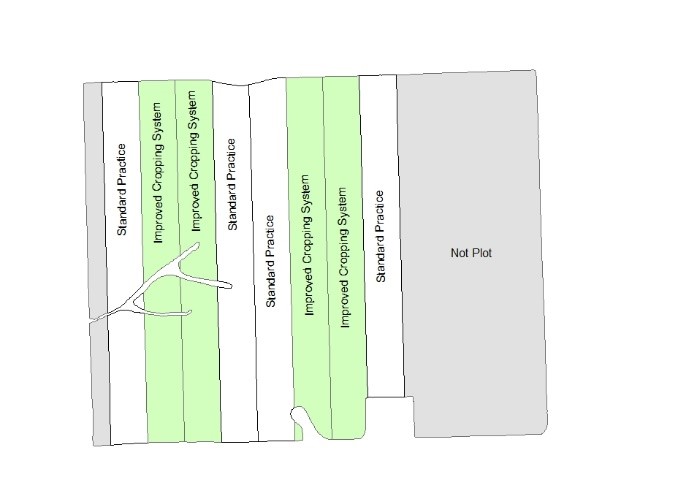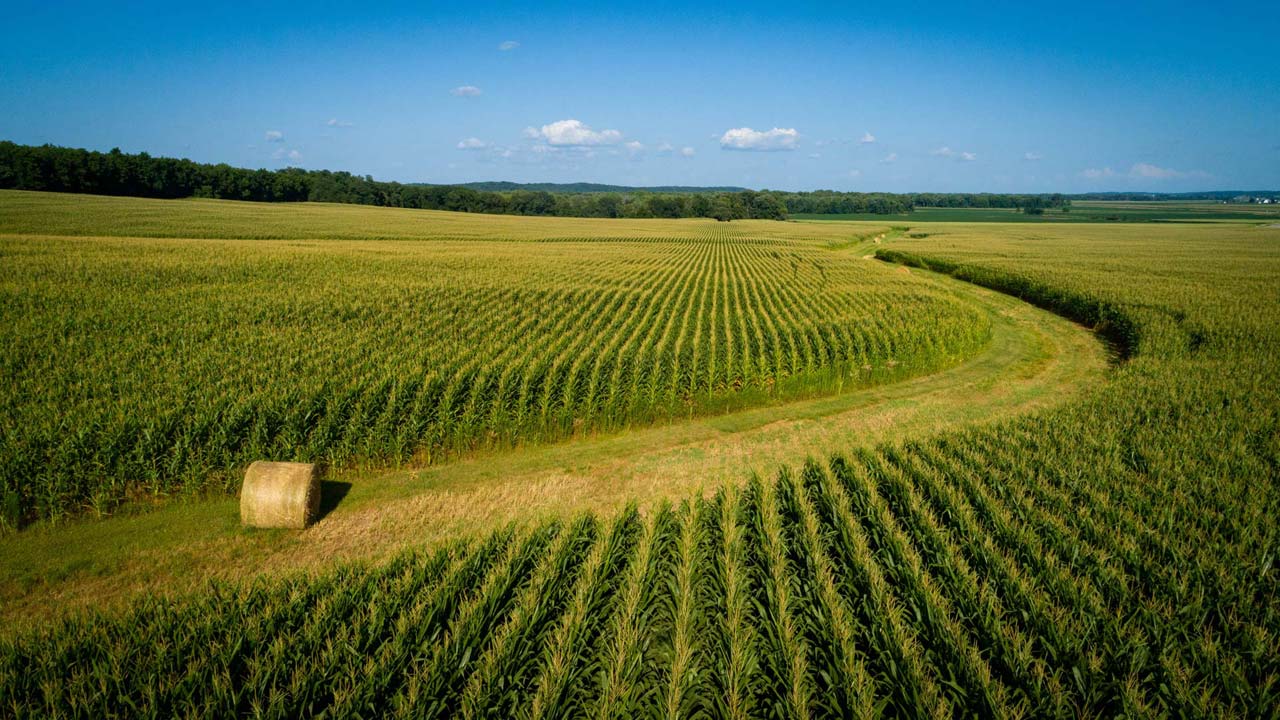2023 May Stewardship Advocate
FARMERS JOINING OTHER FARMERS TO IMPROVE THEIR CROPPING SYSTEMS IN IOWA
Corn and soybean growers in Iowa have a myriad of options available to them as they navigate through each cropping season. One of these decisions involves which conservation practices they want to implement. To aid Iowa producers with information to make crop management decisions, Iowa Corn Growers Association (ICGA), Iowa Soybean Association (ISA) and Iowa State University (ISU) have joined forces to conduct a four-year project looking at several management practices in combination to determine how they can improve cropping systems. The project is called “A Cropping Systems Approach to Increase Farmer Profitability, Reduce Nutrient Losses and Improve Soil Health in Soybean and Corn Production”.
Funding for the project was announced by Secretary of Agriculture Thomas Vilsack at a ceremony on the ISU campus on April 6th. The funding came from USDA’s Conservation Innovation Grants program providing $910,000 and is being matched with $354,000 of non-federal contributions.
Research on conservation practices is often focused on single components within a cropping system, such as cover crop versus no-cover crop or no-till versus conventional tillage. To accelerate the adoption of improved practices, farmers will benefit from more holistic and logistically feasible cropping systems.
The project will evaluate combinations of treatments of reduced tillage, cover crops and nitrogen management practices. These treatments will be compared with the standard practices that the participating grower is using on the remainder of their acres. See the diagram below for sample plot layout. The trials will be approximately 25 acres in size and participating growers will be compensated for the trials and receive cover crop seed and a nitrogen inhibitor at no cost. In addition, the grower will receive a detailed soil and landscape analysis of their farm. To participate, growers must commit to at least two years but may opt-in to participate for up to four years. All data from this project is the property of the participating grower.
The goals of an improved cropping system are greater yield stability, better fertilizer management, simplified weed and disease control, improved on-farm logistics and enhanced soil health and water quality. An added benefit is that participating growers will have access to local producers who have successfully implemented the improved cropping systems on their farms.

LATEST INFORMATION
Bi-Partisan Bill Aims to Provide More Technical Service Providers via NRCS
Carbon’s Next Chapter On The Farm
NCGA Corn Yield Contest Adds Nitrogen Management Class
New GHG report offers ag a look at areas of improvement, progress
Soil and Water Outcomes Fund – 2023 Enrollment is Now Open in Select Areas
New Report Reveals Growing Influence of Food & Ag Sector in U.S. Economy
Living Soil Documentary – Soil Health Institute
Comment Submitted by Triazine Network to EPA
NRCS Announcement: Application Period Now Open for Regional Conservation Partnership Program
May 22, 2023 Iowa Crop Progress and Condition Report
UPCOMING EVENTS:
May 24: Iowa Nutrient Reduction Strategy Field Day at Lee Tesdell Farm, Slater
June 5: Top Soil Summit – Continuum Ag, Riverside
June 6: Bioreactor and Cover Crop Field Day, Ireton
June 7: Paving the Way in Relay Cropping and Water Quality, Atkins
June 7, June 14 and June 21: Iowa Learning Farms Webinars
June 9: Soil Health – A Journey to Profitability, Waterloo
June 13: Bioreactor and Cover Crop Field Day, Coon Rapids
June 19: Drone workshop, Iowa Falls
June 27: Implications of Movement Ecology in Conservation Planning for Monarch Butterflies, Webinar
July 19: What’s up with WOTUS: A look at the Current WOTUS Definition and Recent Supreme Court Decision, Webinar
June, July, August and September: 2023 ISU Research Farm Field Days
June, July, August and September: Practical Farmers of Iowa Field Days
FARMER TO FARMER VIDEO: IMPROVING IOWA’S WATER QUALITY
Thank you to Tim Recker for hosting the first Iowa Nutrient Reduction Strategy (NRS) field day earlier this month. It was a great opportunity to kick off the 10-year anniversary of the NRS and learn more about how farmers are working to implement practices that preserve water quality.
